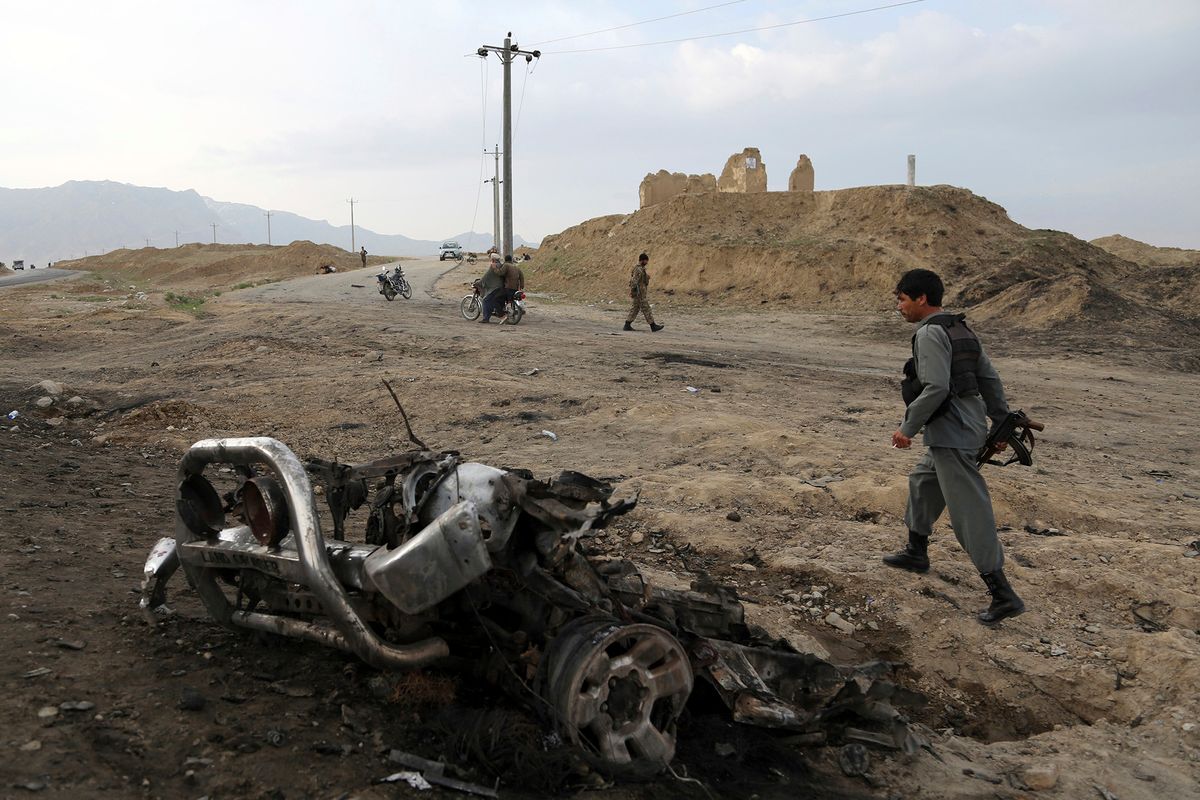Reports say Russia paid Taliban to kill US and British troops

A few minutes every morning is all you need.
Stay up to date on the world's Headlines and Human Stories. It's fun, it's factual, it's fluff-free.
Last Friday, The New York Times reported that a Russian military intelligence unit covertly offered rewards to Taliban militants in Afghanistan to kill American or British coalition troops stationed in the region last year.
The sources in The New York Times’ report were only identified as “officials briefed on the matter.” However, a similar report published by CNN cited intel from a European intelligence official.
It remains unclear whether the reports consulted the same sources.
Russia’s military intelligence agency, widely known as the GRU and the group allegedly responsible for placing the bounties, has been known to orchestrate assassination and destabilization attempts against turncoats and Western democracies. One recent incident that the GRU has been linked to was the attempted murder of double agent Sergei Skripal, a former GRU officer who had betrayed Russia by spying for the British, and his daughter in Salisbury, England in March of 2018.
The United States arrived at these conclusions months ago in internal deliberations that have been largely kept under the wraps until last week when the findings were revisited and shared with the British government, whose troops were among those believed to have been targeted.
Suspicions first arose after a large amount of American cash was discovered at a Taliban outpost after a raid. Interrogations of captured Islamist militants and criminals also created evidence that bolstered the US intelligence assessment. However, the officials speaking to the media did not provide further details about the mechanics of the alleged Russian operation, the dates or any information on the casualties.
Twenty Americans were killed in combat in Afghanistan last year. It remains unclear which ones, if any, were related to the Russian operation.
Discussions about this intelligence assessment have apparently been taking place within the Trump administration since March, with many critics now questioning the White House about their failure to respond to Russia.
US President Donald Trump has since taken to Twitter to defend himself, saying on Sunday, “Intel just reported to me that they did not find this info credible, and therefore did not report it to me or [Vice President Mike Pence].”
One senior administration official supported Trump’s claim, saying that the president was not briefed because intelligence agencies did not reach an immediate consensus on the validity of the findings.
White House Press Secretary Kayleigh McEnany also stood by Trump, saying in a statement on Saturday that neither the president nor the vice president were briefed “on the alleged Russian bounty intelligence.”
McEnany later clarified that her statement “does not speak to the merit of the alleged intelligence but to the inaccuracy of The New York Times story,” which reported that Trump had been briefed. However, she did not deny the validity of the US intelligence report.
This comes amid conflicting statements made by other officials who have said that despite varying levels of confidence among different agencies, there was a broad understanding and agreement that the intel was accurate.
Another official has also stated that the intelligence assessment was included in the President’s Daily Brief (PDB), a top-secret document that compiles classified information on developments in foreign policy and national security intelligence.
Since the publication of the intelligence findings, the Russian Embassy in the US has responded to The New York Times report, calling them “baseless allegations” that have led to death threats against Russian diplomats.
“In the absence of reasons to #BlameRussians, [The New York Times] is there to invent new fake stories,” the Russian Embassy wrote in a tweet on Friday.
The Russian Foreign Ministry has also denounced the report, labeling it “nonsense.”
“This unsophisticated plant clearly illustrated the low intellectual abilities of the propagandists of American intelligence, who instead of inventing something more plausible have to make up this nonsense,” said the ministry.
The Taliban has also denied accusations that they accepted bounties from Russia to target the coalition forces in Afghanistan.
“We strongly reject this allegation. The nineteen-year Jihad of the Islamic Emirate is not indebted to the beneficence of any intelligence organ or foreign country and neither is the Islamic Emirate in need of anyone in specifying objectives,” said Taliban spokesperson Zabiullah Mujahid on Saturday.
“Our target killings and assassinations were ongoing in years before, and we did it on our own resources.”
Mujahid also added that the Taliban had stopped attacking the US and North Atlantic Treaty Organization (NATO) forces after peace talks in February, where the US and the Taliban agreed on a reduction of the group’s operations in exchange for the easing of US sanctions and withdrawal of coalition troops from the area.
Have a tip or story? Get in touch with our reporters at tips@themilsource.com




Comments ()